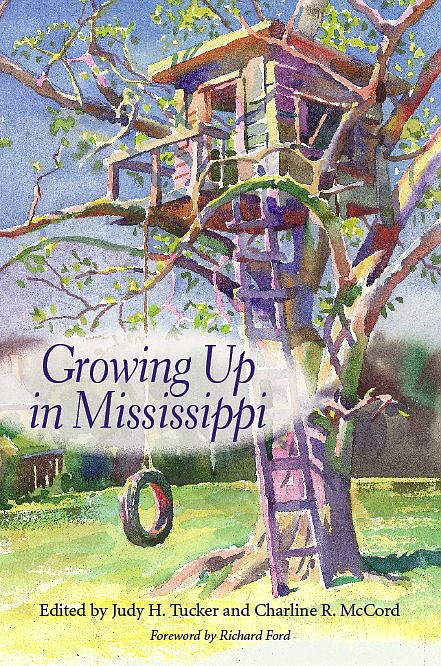Wednesday, May 28, 2008
A Mississippi childhood influences people in a variety of ways, both similar and different. It's no surprise that "Growing up in Mississippi," (University of Mississippi Press, 2008, $25), an edited short story collection of tales and reflections from famous Mississippians like Jimmy Buffett, former Gov. William Winter and Ole Miss Chancellor Robert Khayat, reflects equally varied experiences. Insatiable childhood curiosity, the unique blend of laziness and imagination that Mississippi's endless open space inspires, and the implicit sense of community ties are all key themes found throughout the collection.
Unfortunately, the consistent employment of these themes does not make up for the lack of thematic continuity ultimately crippling the anthology. If you're looking for insightful reflections on Mississippi's unique nexus of identity-influencing characteristics, you won't find it hereat least, you won't find much. What you will find are storiesand sometimes generalizationsof varying literary skill that mostly immerse the reader in flashback-like nostalgia.
Jim Weatherly, a football-star-turned-singer-songwriter, illustrates this romanticized vision best: "I remember running through the woods on lazy summer days, and lying down on my back on a soft green bed of grass, looking up and watching the fluffy marshmallow clouds being pushed along by the southern breeze. I remember staying out after dark and playing Kick the Can and Capture the Flag and all sorts of games with my friends. It was a different time then, a gentler time, time to do everything, and time to do nothing but dream and listen to the radio."
I fondly remember my own Mississippi youth encapsulating these open-ended possibilitiesthough our neighborhood had much fewer kids around to share in community mischiefbut I also remember times when I starkly questioned and opposed some of the very characteristics that make Mississippi the way it is. The stories that work best here are the ones that stretch beyond a rose-colored Mississippi childhood into something more inspired: a moment or a series of experiences that defined the beginning of an identity, one that was undeniably shaped by the particular character of southern life at that time.
For writer and Carrollton native Elizabeth Spencer, it was skipping out on church with her grandfather one Sunday when her parents were out of town. For Spencer, it wasn't about the act itself but the strong affirmation of individuality and a sense of freedom her grandfather who lived in the same house demonstrated by indifferently betraying her parents' rules. When her mother directly asked about the two going to town, her grandfather confirmed the event with such nonchalance that Spencer's mother simply walked out of the room in silence.
"But of the incident, that certain immunity of spirit my grandfather possessed was passed on to me. It came, I think, out of the precise way in which he put his book down on his lap to answer. There was a lifetime in the gesture, distilled, and I have been a good part of that long, growing up to all its meaning.
"After this, though all went on as before, there was nothing much my parents could finally do about the church and me. They could lock the barn door, but the bright horse of freedom was already loose in my world."
George E. Riggs, CEO of California Newspaper Partnership and Hattiesburg native, was living a hard, dangerous life and loving it, trading the safe lands of the University of Southern Mississippi for the wild life of oil rig work. His only problem was the ever-present threat of being drafted into the army and sent to fight in Vietnam. Riggs' tale is the most evocative and poignant in the collection, and one whose turning point actually appears to resonate with the young adult. When Riggs finally did get a draft card, he experienced the gravity and inequitable face of those sent to war. By the mixed blessing of his bad hearing, he was spared the fate of his fellow draftees who were sent to war, white-faced and sobbing. As Riggs puts it: "But by some inexplicable twist of fate I had been spared. I didn't know why, but I made up my mind as I walked down State Street that afternoon that I would not squander the opportunity I had just been given."
Not all of us have had powerful experiences like Riggs, but it would be nice to have more reflective pieces in this collection. As it stands, "Growing up in Mississippi" provides mostly light-hearted and uncomplicated fare that affirms our state's unique merits through the eyes of its most famous children.

Comments
Use the comment form below to begin a discussion about this content.
Sign in to comment
Or login with:
OpenID